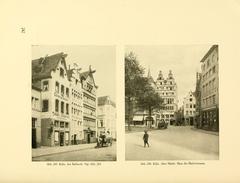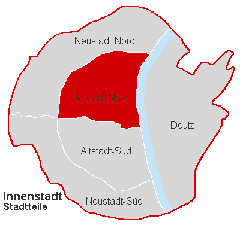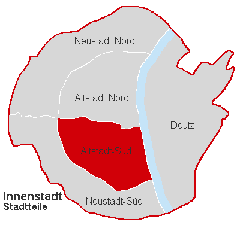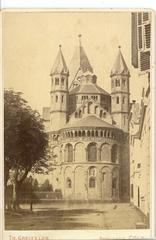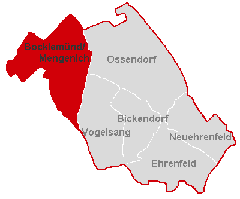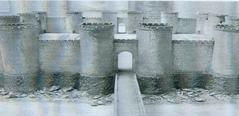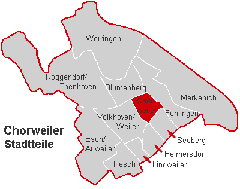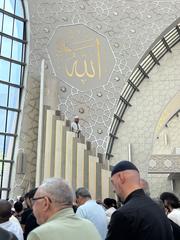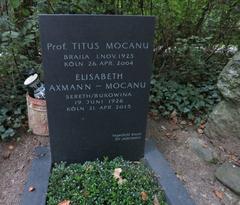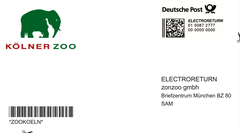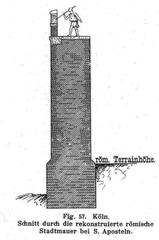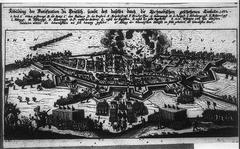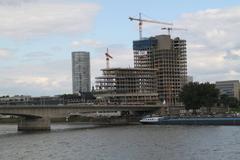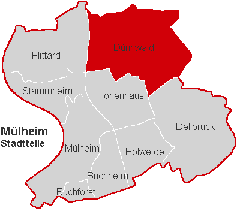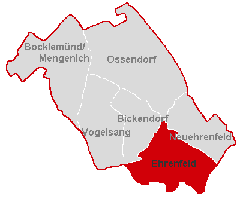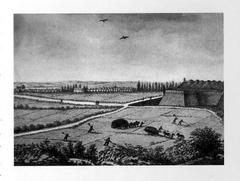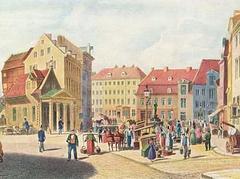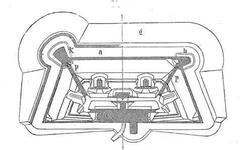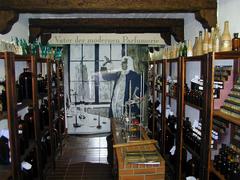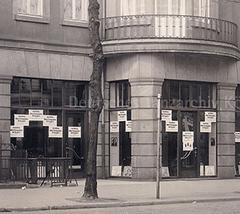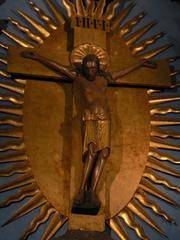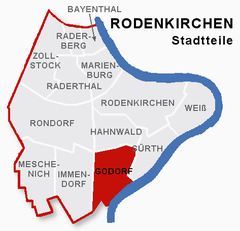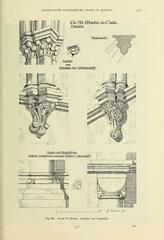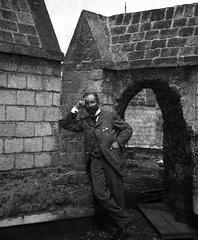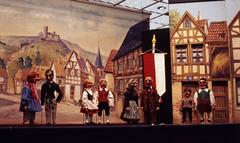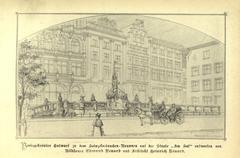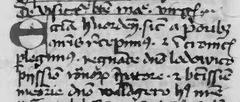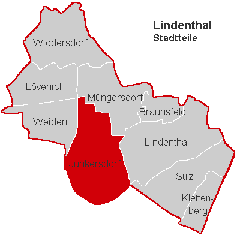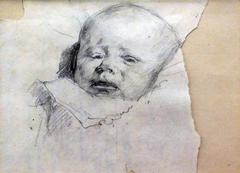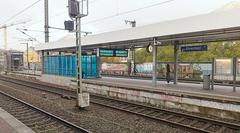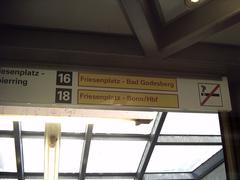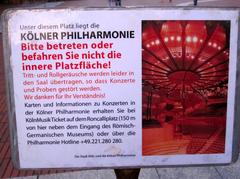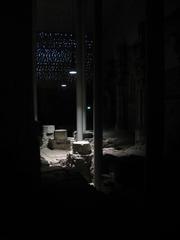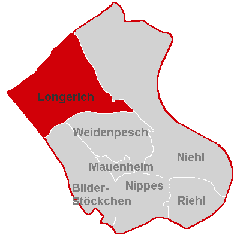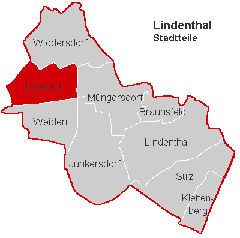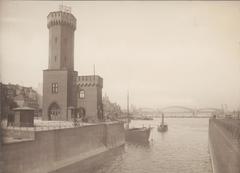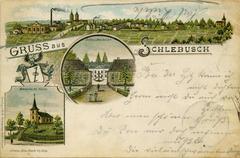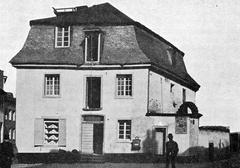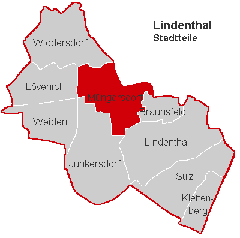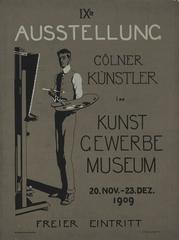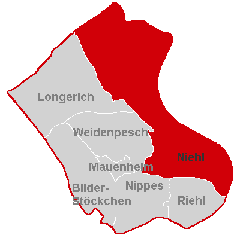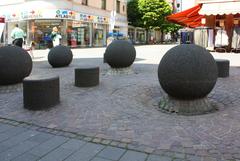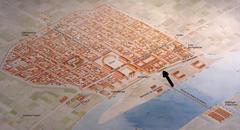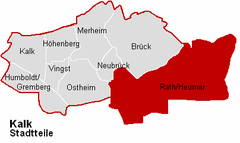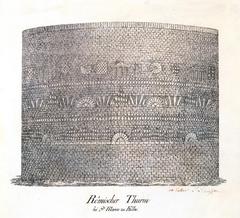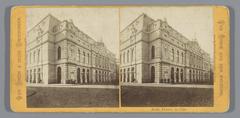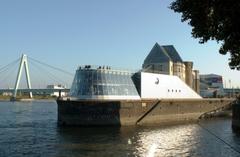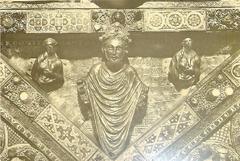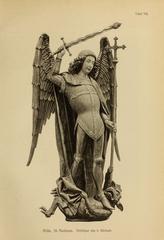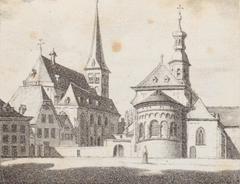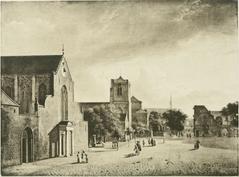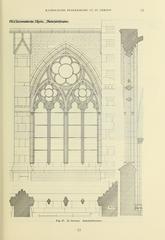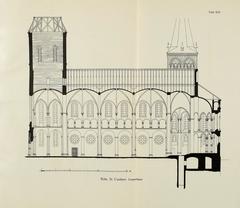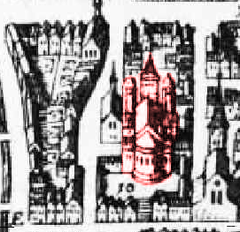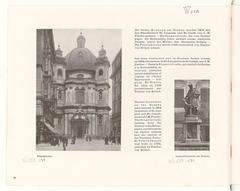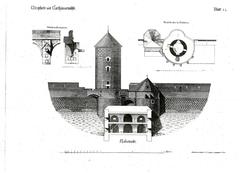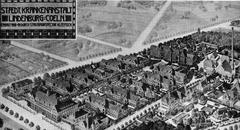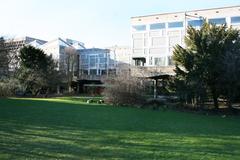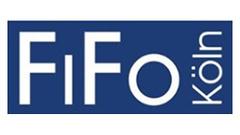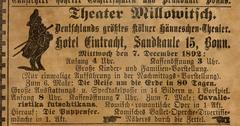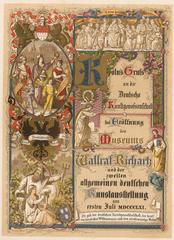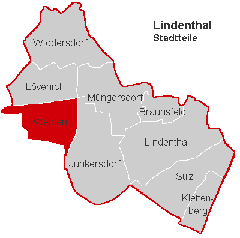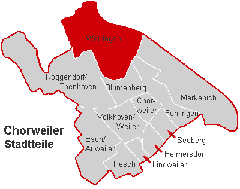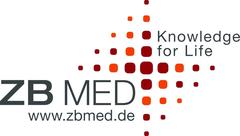Comprehensive Guide to Visiting Industriemuseum Freudenthaler Sensenhammer, Cologne, Germany
Date: 31/07/2024
Introduction
Welcome to the Industriemuseum Freudenthaler Sensenhammer, a unique historical site located in the Schlebusch district of Leverkusen, near Cologne, Germany. This museum offers a rare glimpse into the region’s rich industrial heritage, vividly showcasing the evolution of scythe manufacturing from the 18th century to the modern era. Established initially as a hammer mill in 1778 by Derick van Hees, the facility transitioned through various phases of ownership and technological advancements, ultimately becoming a key player in the agricultural tool manufacturing industry (source). After ceasing operations in 1987, the site was preserved and transformed into a museum in 2005, allowing visitors to explore its historical and cultural significance (source). Today, the museum not only preserves the original buildings and workstations but also serves as a cultural and educational hub, hosting various events, guided tours, and educational programs. This guide provides comprehensive information on the museum’s history, visiting hours, ticket prices, and more, ensuring you have all the details needed to plan an enriching visit.
Table of Contents
- [Introduction](#introductionintroduction)
- [Historical Background of Industriemuseum Freudenthaler Sensenhammer](#historical-background-of-industriemuseum-freudenthaler-sensenhammerhistorical-background-of-industriemuseum-freudenthaler-sensenhammer)
- [Early Beginnings: The Foundation of Freudenthaler Sensenhammer](#early-beginnings-the-foundation-of-freudenthaler-sensenhammerearly-beginnings-the-foundation-of-freudenthaler-sensenhammer)
- [Transition and Expansion: The Lange and Kuhlmann Eras](#transition-and-expansion-the-lange-and-kuhlmann-erastransition-and-expansion-the-lange-and-kuhlmann-eras)
- [Industrial Advancements: The Late 19th and Early 20th Centuries](#industrial-advancements-the-late-19th-and-early-20th-centuriesindustrial-advancements-the-late-19th-and-early-20th-centuries)
- [Decline and Closure: The End of an Era](#decline-and-closure-the-end-of-an-eradecline-and-closure-the-end-of-an-era)
- [Preservation and Transformation: The Birth of the Industrial Museum](#preservation-and-transformation-the-birth-of-the-industrial-museumpreservation-and-transformation-the-birth-of-the-industrial-museum)
- [Visiting Information](#visiting-informationvisiting-information)
- [Visiting Hours](#visiting-hoursvisiting-hours)
- [Ticket Prices](#ticket-pricesticket-prices)
- [Guided Tours and Special Events](#guided-tours-and-special-eventsguided-tours-and-special-events)
- [Travel Tips and Nearby Attractions](#travel-tips-and-nearby-attractionstravel-tips-and-nearby-attractions)
- [Accessibility](#accessibilityaccessibility)
- [Modern-Day Significance: A Cultural and Educational Hub](#modern-day-significance-a-cultural-and-educational-hubmodern-day-significance-a-cultural-and-educational-hub)
- [Leadership and Management: Guiding the Museum’s Future](#leadership-and-management-guiding-the-museums-futureleadership-and-management-guiding-the-museums-future)
- [Conclusion](#conclusionconclusion)
- [FAQ](#faqfaq)
- [Call to Action](#call-to-actioncall-to-action)
Historical Background of Industriemuseum Freudenthaler Sensenhammer
Early Beginnings: The Foundation of Freudenthaler Sensenhammer
The origins of the Freudenthaler Sensenhammer can be traced back to 1778 when the first hammer mill was established in Freudenthal on the Dhünn River. This initial setup was authorized by sovereign permission granted to the merchant Derick van Hees, who constructed a horizontal hammer mill. At this early stage, the facility did not produce scythes; instead, it focused on manufacturing steel blanks for various applications (source).
Transition and Expansion: The Lange and Kuhlmann Eras
In 1815, the manufacturer Caspar Lange took over the operations of the hammer mill. Lange was instrumental in expanding the facility, enhancing its capacity and infrastructure. This period marked significant growth and development for the factory. However, it was not until 1837, when the Kuhlmann family assumed control, that the production of sickles and scythes began. This transition marked a pivotal shift in the factory’s output, aligning it more closely with the agricultural needs of the time (source).
Industrial Advancements: The Late 19th and Early 20th Centuries
The late 19th century saw further advancements at the Freudenthaler Sensenhammer. In 1890, a boiler house with a chimney was constructed to accommodate a steam engine, reflecting the industrial advancements of the era. This development was crucial in enhancing the factory’s production capabilities and efficiency. By 1906, the factory had entered into a feed-in contract with the Solingen-based Bergische Electrizitäts-Werk, integrating electrical power into its operations (source).
The early 20th century was a period of peak production for the factory. By 1914, the Freudenthaler Sensenhammer was producing over 200,000 scythes and straw knives annually. This impressive output underscored the factory’s significance in the agricultural tool manufacturing industry during this period (source).
Decline and Closure: The End of an Era
Despite its historical significance and industrial advancements, the Freudenthaler Sensenhammer faced challenges in the latter half of the 20th century. By 1987, the factory, then known as HP Kuhlmann Sons, ceased operations. This closure marked the end of an era for the historic scythe factory, which had been a cornerstone of industrial activity in the region for over two centuries (source).
Preservation and Transformation: The Birth of the Industrial Museum
In the spring of 2005, efforts to preserve the historical significance of the Freudenthaler Sensenhammer culminated in the establishment of an industrial museum on the site. The museum was designed to showcase the original buildings and workplaces, which had been largely preserved in their original state. Visitors to the museum can explore the various stages of scythe manufacturing, gaining insights into the historical processes and techniques used in the factory (source).
Visiting Information
Visiting Hours
The Industriemuseum Freudenthaler Sensenhammer is open to visitors from Tuesday to Sunday, 10:00 AM to 5:00 PM. It is closed on Mondays and public holidays.
Ticket Prices
- Adults: €8.00
- Students and Seniors: €5.00
- Children under 12: Free
Guided Tours and Special Events
The museum offers guided tours that provide deeper insights into its history and operations. Additionally, special events such as blacksmithing demonstrations, exhibitions, theater performances, and concerts, including the renowned Leverkusen Jazz Days, are regularly hosted at the museum.
Travel Tips and Nearby Attractions
The museum is located in Leverkusen, easily accessible by public transport and car. Nearby attractions include the Bayer Cross Leverkusen and the Japanese Garden, making it a perfect day trip destination.
Accessibility
The Industriemuseum Freudenthaler Sensenhammer is wheelchair accessible and has facilities to accommodate visitors with disabilities.
Modern-Day Significance: A Cultural and Educational Hub
Today, the Industriemuseum Freudenthaler Sensenhammer serves not only as a historical exhibit but also as a vibrant cultural and educational hub. The museum regularly hosts blacksmithing demonstrations, providing visitors with a tangible connection to the past working world of the factory. Additionally, the museum is a venue for a variety of events, including exhibitions, theater performances, and concerts. Notably, the Leverkusen Jazz Days are held at the museum, attracting visitors and music enthusiasts from the region and beyond (source).
The museum also offers unique opportunities for private events. The historic factory halls can be rented for private parties, and couples can even choose to have their wedding ceremonies in this distinctive industrial setting. These modern uses of the space highlight the adaptive reuse of the historic site, blending its rich past with contemporary cultural and social activities (source).
Leadership and Management: Guiding the Museum’s Future
Since July 2019, the museum has been under the leadership of Jürgen Bandsom, a qualified restorer who succeeded Wilhelm Matthies. Bandsom’s expertise and vision are crucial in maintaining the museum’s historical integrity while ensuring its relevance and appeal to modern audiences. Under his guidance, the museum continues to thrive as a testament to the industrial heritage of the region (source).
Conclusion
From its early beginnings as a hammer mill in the 18th century to its current status as a dynamic industrial museum, the Industriemuseum Freudenthaler Sensenhammer offers a unique glimpse into the industrial history of Leverkusen and the broader region. Plan your visit today to explore this fascinating site and immerse yourself in the rich cultural and historical heritage it preserves.
FAQ
What are the visiting hours for Industriemuseum Freudenthaler Sensenhammer?
- The museum is open from Tuesday to Sunday, 10:00 AM to 5:00 PM.
How much are tickets for Industriemuseum Freudenthaler Sensenhammer?
- Adults: €8.00, Students and Seniors: €5.00, Children under 12: Free.
Are guided tours available?
- Yes, the museum offers guided tours for a deeper exploration of its history and operations.
Is the museum accessible for visitors with disabilities?
- Yes, the museum is wheelchair accessible and has facilities to accommodate visitors with disabilities.
Can I host a private event at the museum?
- Yes, the historic factory halls can be rented for private parties, and couples can have their wedding ceremonies in this distinctive industrial setting.
Call to Action
Stay up to date with the latest events and news from the Industriemuseum Freudenthaler Sensenhammer by following them on social media and visiting their official website. Plan your visit today and immerse yourself in the rich industrial heritage of Leverkusen.
References
- Industriemuseum Freudenthaler Sensenhammer. (n.d.). Retrieved from https://second.wiki/wiki/industriemuseum_freudenthaler_sensenhammer
- Freudenthaler Sensenhammer. (n.d.). Wikipedia. Retrieved from https://de.wikipedia.org/wiki/Industriemuseum_Freudenthaler_Sensenhammer
- Industriemuseum Freudenthaler Sensenhammer. (n.d.). WhichMuseum. Retrieved from https://whichmuseum.com/museum/industriemuseum-freudenthaler-sensenhammer-leverkusen-28666
- Sensenhammer. (n.d.). Retrieved from https://sensenhammer.de/
